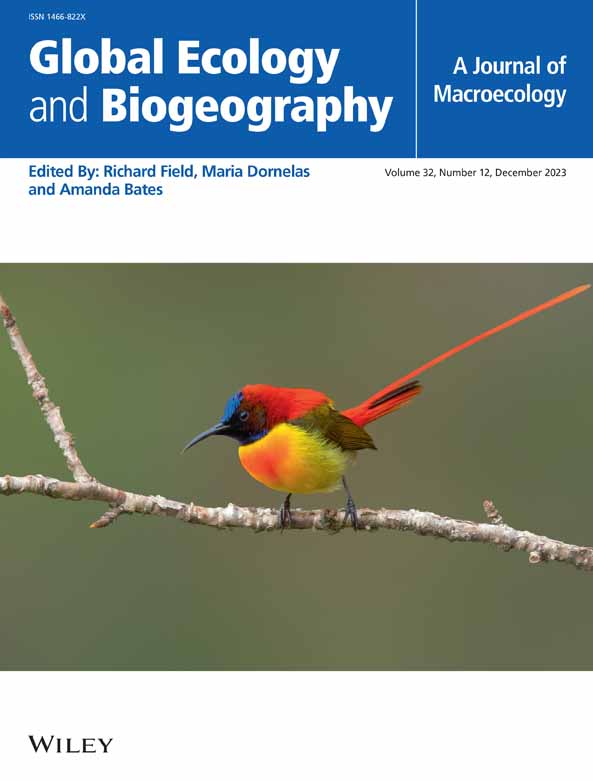Indirect Effects of Temperature Drive Gradients in Fish Food Web Properties
Abstract
Aim
Understanding the direct (e.g., on biological rates) and indirect (e.g., through changes in species richness) effects of temperature on food web properties, in the context of latitudinal gradients and climate warming. We focus on species interactions and predict variations in two metrics of food web properties: trophic control and temporal variability.
Location
Global oceans.
Time Period
2001–2018.
Major Taxa Studied
Marine fish species.
Methods
We use a modelling approach coupled with a global dataset of fish food webs. Species occurrences are obtained from data sources, while trophic interactions are predicted by a size-based niche model calibrated with a global interaction dataset. Interaction strengths are constrained by allometric scaling laws for predation and biomass. We investigate how predictors varying with latitude (temperature, species richness, productivity, food web structure) drive latitudinal variations in trophic regulation and variability.
Results
Our results suggest a latitudinal gradient in two metrics of community dynamics, with both trophic feedback strength (underlying phenomena such as cycles and cascades) and temporal stability increasing with latitude. In our model, this variation is tied directly and indirectly to temperature, and we find that direct effects of temperature are weaker than (or at most equal to) indirect effects. The direct effect on interaction rates decreases trophic feedbacks yet increases variability. The organism-level temperature–size rule is found to increase both feedback and variability. Finally, community-level indirect effects (species richness and connectance) impact trophic control but not variability. Climate warming moderately affects trophic control, variability and total biomass, but more strongly alters individual species biomass.
Main Conclusions
Our study improves understanding of the drivers of latitudinal variation in food web properties and helps disentangle the direct and indirect effects of temperature. Indirect effects are predicted to drive biogeographic variation in food web properties, while direct effects such as short-term warming could have stronger consequences at the species level.


 求助内容:
求助内容: 应助结果提醒方式:
应助结果提醒方式:


